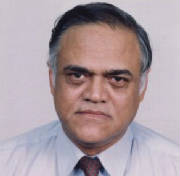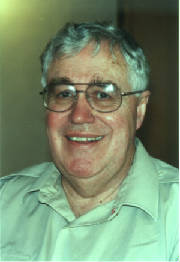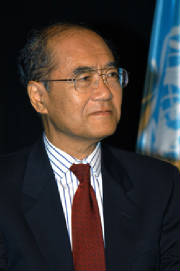|
World Press Freedom Day 2006 Message from Citizens' Media Dialogue

|
| Javed Jabbar |
The advent of democracy and media freedom around the world in the last part
of the 20th century and during the first few years of the 21st century are
long overdue shifts in favour of popular participation and increased mass
awareness about issues that are important for humanity.
At the same time, there are disturbing trends towards an unhealthy
concentration of the vested interests of governments, big business and big
media into a triangle of self-benefits that excludes people at large from a
meaningful role in determining the use of media freedom.
The second negative trend is the rapid urbanization and direction of
economic gains, and of decision-making about media issues into the large
urban centres. This trend by-passes and disregards the needs and
requirements of rural areas and of small towns. Despite the proliferation
of new media like wireless technologies and cell phones, millions of people
living outside and far away from the large cities, including journalists
and publishers of print media are disempowered and disadvantaged.
It is in this context that the regular observance of World Press Freedom
Day by editors like Mr. Ehsan Ahmad Sahar in Ahmedpur East in southern
Punjab assumes both a symbolic and a substantive significance. This
observance reflects the commendable perseverance of journalists, editors
and publishers living amongst the 60% of the people of Pakistan who reside
in the rural areas and in small towns and who regularly provide a forum for
the candid reporting of news and analysis at the local grass-roots level.
They fulfil a vital requirement of democracy and media freedom.
I wish Mr. Ehsan Ahmed Sahar, his colleagues and all others who are
similarly engaged continued success in their valuable work.
Javed Jabbar
Founder
Citizens' Media Commission of Pakistan
World Press Freedom Day 2006 Message from World Association of Newspapers

|
| Timothy Balding |
World Press Freedom Day 2006 Message from World Association of Newspapers
On this very special day, World Press Freedom Day, we salute your initiative to support the development of a free and independent
rural press in Pakistan.
World Press Freedom Day is an occasion to protest the countless violations against independent media and to express our solidarity
and support for newspaper colleagues who are languishing in prison or prevented, in a hundred different ways, from simply
doing their jobs. But it is also a great occasion to promote the mission and merits of a free press and to explain and emphasize
how such a press can contribute to bringing peace and prosperity to our troubled world.
The media are the primary check, monitor and revealer of incompetence, mismanagement, corruption, lack of transparency and
absence of accountability in all areas of government policy and action to resolve the problems of poverty, education, and
health.
And yet the press and the people who work for it, all over the world, continue to be the victims of ruthless regimes and
criminal organisations. In dozens of countries, almost on a daily basis, journalists, editors and publishers are murdered,
assaulted, detained and harassed, as their publications are censored, fined, suspended and closed down.
More than 500 publishers and journalists were arrested and jailed around the world in 2005 and they number several thousand
over the past decade. Dozens of them remain in prison today, serving sentences as long as 20 years.
Locking up journalists instils fear and sends a clear message: Don't meddle with affairs that don't concern you. Government
corruption, for example, or criminal activity linked to influential personalities, or the absence of political pluralism and
human rights.
The existence of a free and independent press is fundamental to the establishment of durable democracy and an effective market
economy. Good government, a mature system of political alternance and responsible civil society rarely if ever develop in
the absence of a strong, critical and free press.
Freedom of the press demands not only that journalists be able to exercise their profession without restriction. It also
requires the existence of well-managed, economically-viable newspaper enterprises, operating within effective infrastructures.
We commend our colleagues at the Rural Media Network for your commitment to support the development of rural media, which
form an integral of the media landscape in Pakistan. Your efforts in the face of numerous obstacles such as lack of infrastructure,
training and resources make the your work all the more vital for the development of a vibrant press in your country.
On World Press Freedom Day 2006 we salute our colleagues in Pakistan and extend our admiration for your efforts.
Timothy Balding
Chief Executive Officer
World Association of Newspapers
Commonwealth Journalists Association World Press Freedom Day 2006 Messages

|
| Murray Burt |
I am happy to add our word to your important celebration of May 3. Also,
please extend our good wishes to your colleagues from your friends in Canada.
It is a sound belief that without the oxygen of truth afforded by press freedom, society risks suffocation under apathy,
autocracy or tyranny. With this in mind, members of the Canadian Branch of the Commonwealth Journalists Association join
you (and sister organizations throughout the Commonwealth) in marking World Press Freedom Day on May 3. And congratulate you
on your initiative spreading that word.
Murray Burt,
International Past President
Commonwealth Journalists Association

|
| David Spark |
A free press can help poor people to become less poor. It can do this by
drawing attention to the things from which poor people suffer, such as
governments' mistakes and lack of care, oppression and cheating by powerful
people, poor pay and bad conditions of work. Governments have a
responsibility for the welfare of their citizens. If newspapers are free to
report what is happening, they can make it impossible for officials to
escape their responsibilities. They can enable the public to press powerful
people to behave in a fair way.
David Spark
Editor
CJA newsletter
Message from UNESCO on World Press Freedom Day 2006

|
| Ko´chiro Matsuura |
On World Press Freedom Day, we remind the world of the importance of protecting the fundamental human rights of freedom of
expression and freedom of the press, enshrined in Article 19 of the Universal Declaration of Human Rights. Freedom of expression
and press freedom are central to building strong democracies, promoting civic participation and the rule of law, and encouraging
human development and security.
This year, World Press Freedom Day is dedicated to the consideration of how protecting and furthering the fundamental human
rights of freedom of expression and press freedom can assist in assuring another human right - the right to be free from poverty.
Today, more than 1 billion people live on less than $1 per day. Another 2.7 billion live on less than $2 per day. To combat
these tragic statistics, the United Nations Millennium Declaration of 2000 made poverty eradication the highest priority among
the goals of the international development community. The first Millennium Development Goal (MDG) is that, by 2015, the number
of people living in extreme poverty and suffering from hunger should be reduced by half.
It is in this context that the recommendations for action from the World Summit on the Information Society should be seen.
UNESCO's elaboration of its concept of "knowledge societies", which is based upon four key principles - freedom of expression,
universal access to information and knowledge, respect for cultural and linguistic diversity, and quality education for all
- was an important contribution to the World Summit. This concept recognizes the crucial role of the media and information
and communication technology (ICT) in creating activities that will expand access to information, contribute to achieving
the MDGs, and enable us to eventually bridge the so-called "digital divide", which is understood to be far more than a technological
issue.
In the five years that have elapsed since the MDGs were elaborated, governments, UN agencies, NGOs and other international
actors have made tremendous efforts to mobilize resources and work together towards realizing these goals. However, despite
these efforts, there is growing concern that without moving forward differently, we are not on track to attain the MDGs. Thus,
we need to think creatively, even as we continue to think holistically, about how to achieve these essential goals.
One central component of efforts to achieve the MDGs is local ownership and participation. Observing the successes and failures
of development efforts has led development agencies, NGOs and state actors to structure development around local participation,
recognizing that without the empowerment and understanding of local actors, even the best-supported development plans tend
to produce negligible or unsustainable results.
Free and independent media should be recognized as a key dimension of efforts to eradicate poverty, for two main reasons.
First, free and independent media serve as a vehicle for sharing information in order to facilitate good governance, generate
opportunities to gain access to essential services, promote accountability and counteract corruption, and develop the relationship
between an informed, critical and participatory citizenry and responsive elected officials. Second, free and independent media
are associated with a range of 'goods' or benefits that are highly relevant to the challenge of poverty eradication - including
the recognition and strengthening of basic human rights, a stronger civil society, institutional change, political transparency,
support to education, public health awareness (such as education campaigns on HIV and AIDS) and sustainable livelihoods. There
is also a strong positive correlation between freedom of expression and higher incomes, lower infant mortality and increased
adult literacy. These ideas were reiterated most recently in the document adopted at the World Summit on the Information Society
in Tunis, Tunisia, in November 2005, where 176 participating States reaffirmed that freedom of expression and the free flow
of information, ideas and knowledge are essential for development.
Thus, World Press Freedom Day 2006 provides an occasion for considering the important questions of how a free press can help
eradicate poverty and how freedom of expression and press freedom can assist in achieving the MDGs. In so doing, it becomes
clear that the defence of one fundamental human right - the right to freedom of expression - may directly protect several
others, thereby showing how rights protections are interwoven intellectually, morally, and in practice.
Of course, for the media to be effective in alleviating poverty, they must be allowed to operate freely and safely. This
year, we celebrate World Press Freedom Day at a time when being a media professional has never been more dangerous. In 2005,
according to the statistics of the International Federation of Journalists (IFJ), a record number of journalists and media
staff - 150 people - were killed in the line of duty. This is the largest annual number of media professionals killed in recorded
history, and represents a tragic continuation of a statistical trend that has been rising over the past several years; being
a journalist is very dangerous and, sadly, is becoming more so. In addition to deaths in the field, journalists and other
media professionals continue to face threats and harassment; last year, more than 500 media professionals were detained or
imprisoned. Specific conflicts have also claimed record high numbers of journalists who have been killed or injured, with
the war in Iraq claiming 60 lives between March 2003 and December 2005.
UNESCO calls on governments and public authorities throughout the world to end, in particular, the culture of impunity regarding
violence against journalists by investigating and punishing those responsible for attacks on media professionals, and by taking
the necessary precautions that make it possible for journalists to continue to provide us with the essential knowledge and
information that flow from a free and independent press.
Ko´chiro Matsuura
Director-General UNESCO

|
| Jocelyne Josiah |
On this very special day, 3 May World Press Freedom Day, UNESCO and the International Programme for the Development of
Communication (IPDC) highly commend the efforts of the Rural Media Network of Ahmedpur East, Pakistan in its contribution
to maintaining free and independent media in this country.
Free and independent media is key, not only in promoting the freedom of journalists to report and comment on events taking
place, but also in recognizing and strengthening basic rights of the journalists themselves and ensuring basic human rights
of citizens on the whole.
We felicitate the commitment of the Network in reinforcing rural media and providing, through a strengthened Nawa-i-Ahmedpur
Sharqui'a and
Sadiq News, new avenues of access of the voices of the poor and disadvantaged as well as rural journalists to the democratic
processes of the country. This new culture of sharing information will hopefully accelerate more local participation and
empowerment in rural communities in coping with the challenges of extreme poverty and
deprivation; facilitate good governance and accountability; assist in counteracting corruption and eventually help toforge
that vital relationship between an informed citizenry and more responsive elected officials, which is essential for sustainable
development and the achievement of the UNITED NATIONS Millenium Development Goals.
Jocelyne Josiah
Adviser in communication and information,
UNESCO
UNESCO House
B 5/29 Safdarjung Enclave
New Delhi 110 029, INDIA
WPFD 2006 Message from International Journalists Network

|
| Joe Stange |
We have noticed that not all journalists celebrate World Press Freedom Day, this year scheduled for May 3. It also appears
that journalists celebrate it most vocally and proudly in countries where press freedom is relatively scarce, or not firmly
established. As you know, Pakistan is one of those countries.
As you gather for a seminar to mark World Press Freedom Day, you face the most responsibility for raising journalism standards
in your country. There may always be foreign organizations working to provide training or raise international awareness of
your situation. But in the end, Pakistani journalists themselves must do the dirty, difficult work of strengthening and building
strong, independent news media.
Your interest in participating in a World Press Freedom Day seminar, organized by the Rural Media Network, shows your commitment
to building independent media in Pakistan. You are setting an important example for colleagues in your own country and around
the world.
We wish to express our solidarity with you, and congratulate you for your ongoing efforts.
Joe Stange
Executive Editor
International Journalists Network
|